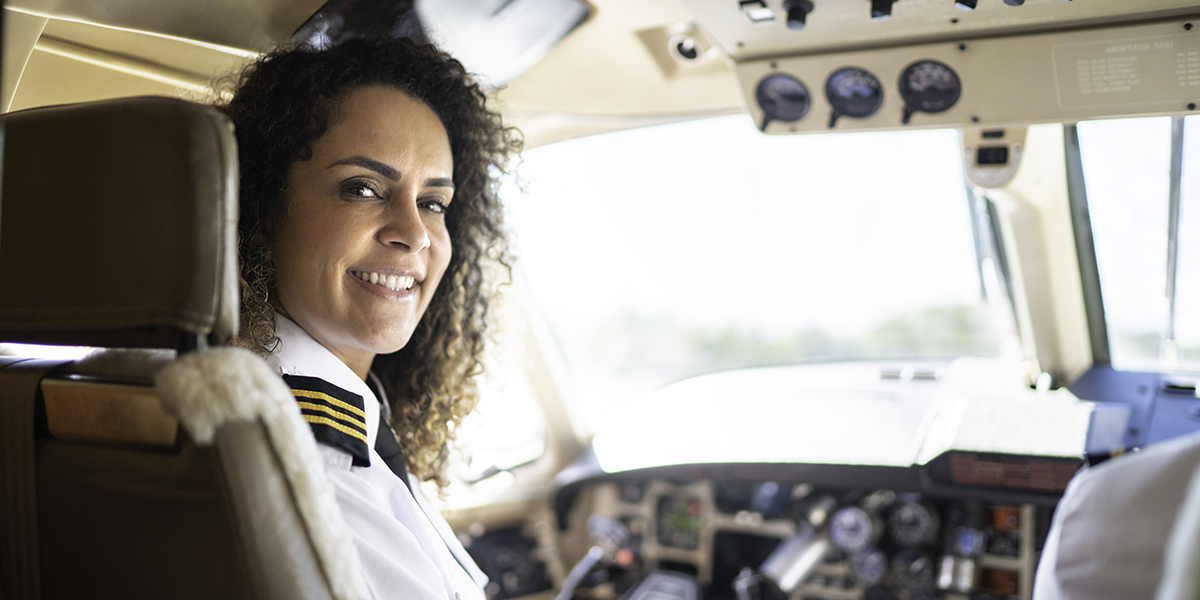How Pilot Personality Affects Safety Culture
| Source: Global Aerospace
Share
Morris Plains, Nov. 06, 2023 (GLOBE NEWSWIRE) -- ESTJ is the general occupational personality theme code for professional pilots as defined by Meyers-Briggs. Yes, pilots hate those tests.
This combination of Extraverted, Sensing, Thinking and Judging personality traits exist in about 11% of the U.S. population. The traits that make great pilots can also be a detriment and a double-edge sword for your flight department’s safety culture.

If you evaluate yourself over the last week, you might find that you exhibited behaviors that encompass a variety of personality types. They can even change throughout your life, but each of us has an ingrained behavioral reflex and trend of thought process that often cannot be determined by a multiple-choice test.
Even though the ESTJ combination of personalities rose above the rest as a common theme in a personality test among thousands of people who are also pilots, your flight department is made up of variables of those traits, so let’s just address a commonality.
Introverts Exhibiting Extroverted Behavior
Despite what Meyers-Briggs says, pilots in general are introverts who exhibit extroverted behavior. Being a pilot requires outward confidence, decisiveness and the ability to immediately and clearly communicate a thought process that results in an external action. It’s not just about decision-making internally, like an executive in a boardroom. Pilots must put the result of their thoughts into immediate action and contend with instant feedback. The wrong action could lead to the last action they will ever make.
Each flight requires constant high-level leadership decision-making followed by an instant reaction to layers of input. So to function effectively, pilots must be able to detach themselves from emotion. That is the strength of an ESTJ pilot. However, that detachment can be an issue for the rest of the personalities in our world, and often that disconnect can overshadow a pilot’s own decision-making ability.
If an engine is on fire, the pilot needs to compartmentalize the situation and separate it from how a human should react—with fear. This same ability can also make pilots appear abrasive, harsh, uncaring and lacking empathy when flight coordination calls and asks if they can work an extra day. Introverts recharge when they’re alone, so if you work them to the edge of duty time day after day, they may quietly (or not) oblige, but their ability to maintain an elevated level of situational awareness is diminished.
The peripheral problem is they often will not admit it—or acknowledge it—to themselves. That is especially true with younger pilots, who are ambitiously trying to rack up flight hours. They will say “yes” when they should say “no,” and because they finished the mission safely, it will be negative reinforcement. They are not aware of their own fatigue (or won’t admit it) because they are detached from that perceived “emotion” of fatigue.
Pilot Personalities and Team Dynamics
Now, take two ESTJs and lock them in a flight deck, just inches away from each other, and there’s bound to be passive aggressive conflict—even between pilots who consider themselves friends. Pilots are trained to work under Crew Resource Management rules, and they’re excellent at it, but it’s not their instinct. They do not particularly like small talk, so they find flying an approach to minimums is easy, but conversation is draining.
Pilots function at their highest level after taking a break and being away from the obligations of the flight deck. With this in mind, it’s easier to create an environment and company where pilots have higher job satisfaction that results in a better safety culture. Simply ensure they’re getting enough detachment time.
Safety workshops and team building are vitally important. So, HR and Safety Managers have good intentions in coordinating these types of events. However, constant requirements for pilots to gather on days off or downtime, even in virtual meetings, can be detrimental.
Having a mandatory weekly safety briefing might sound like you’re taking steps to create a better safety culture. But making your entire flight department take away from their detachment time every week can have the opposite effect.
Then, require pilots to attend workshops led by nonpilot personalities, who make them do things like role play a safety scenario in front of their peers, and you’ve set your company up for a quiet rebellion. Pilots are team players, but that means they will grumble amongst themselves and resent the requirement, but they won’t speak up to management out of respect.
Taking Pilot Personalities Into Account
Now that you know a little more about pilot personalities, that’s half the battle. Recognizing that personality shapes behavior gives you the power to learn how to balance safety and budgets. It’s easy to take actions to ensure they get their downtime without them even knowing.
Of course, it’s hard to have self-discipline when you really need to have a pilot fly on their day off. But you must weigh that against the overall health of your safety culture and then decide.
Just be sure to do what pilots do so well, and detach from your emotions before you make up your mind.
About Global Aerospace SM4 Aviation Safety Program
The Global Aerospace SM4 Safety Program has revolutionized the way insurance specialists help their clients achieve higher levels of operational safety. SM4 was built on the concept of integrating four critical safety components: planning, prevention, response and recovery. Its mission is to help organizations manage risk, enrich training efforts, strengthen safety culture and improve safety management systems. https://sm4.global-aero.com/
Global Aerospace SM4 Aviation Safety Program Media Contact
Suzanne Keneally
Vice President, Group Head of Communications
+1 973-490-8588
Global Aerospace SM4 Aviation Safety Program How Pilot Personality Affects Safety Culture
source: https://www.globenewswire.com/news-release/2023/11/06/2774344/0/en/Global-Aerospace-s-SM4-Aviation-Safety-Program-Offers-Insights-on-Pilot-Personalities-and-Team-Dynamics.html
Your content is great. However, if any of the content contained herein violates any rights of yours, including those of copyright, please contact us immediately by e-mail at media[@]kissrpr.com.
Release ID: 795020

